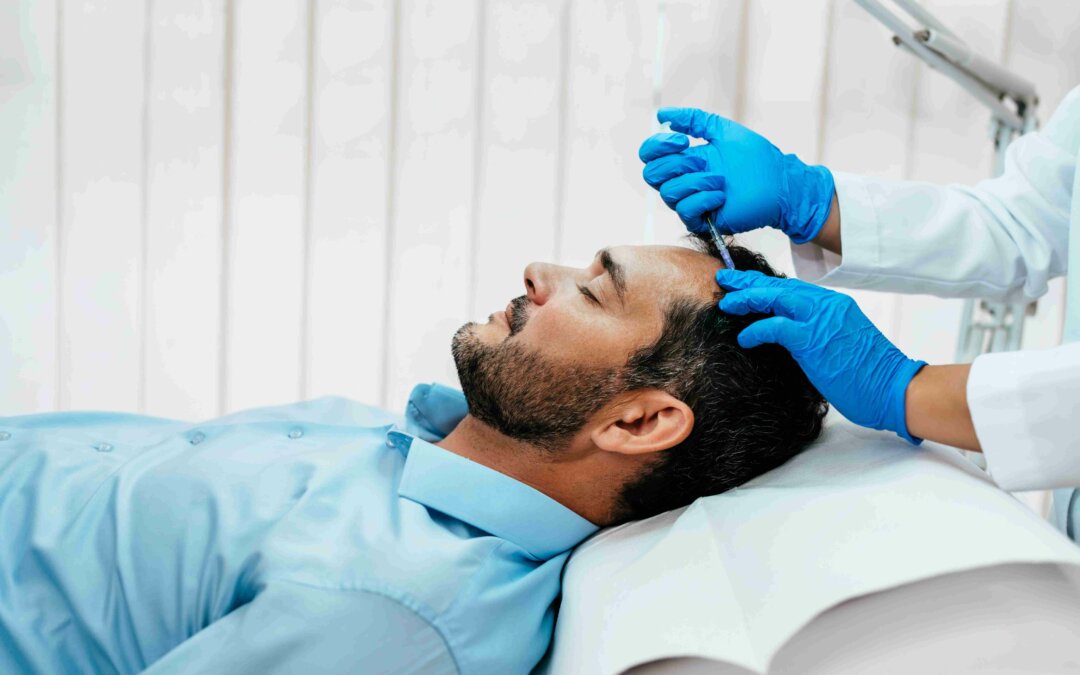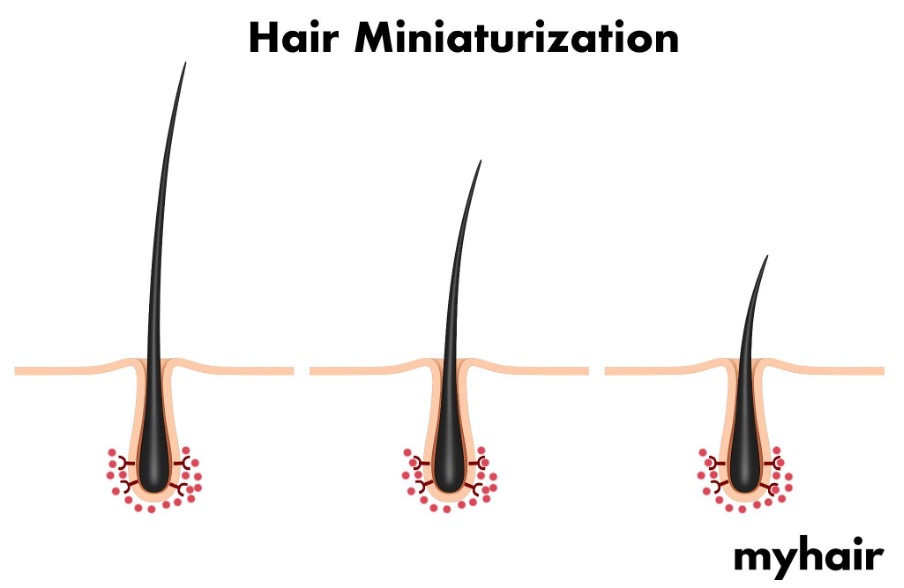The occasional desire to scratch your head is nothing to be worried about. But if your scalp is constantly itchy, or that itchiness is accompanied by other symptoms, that might be cause for concern. In these cases, an itchy scalp is often a sign of a skin problem or infection. It might even be related to a type of alopecia.
Itchy scalp causes and conditions
Scalps itch for many reasons. According to a study in the Skin Appendage Disorders journal, the most common causes of an itchy scalp are:
- Anxiety
- Contact dermatitis, where dermatitis occurs as a response to a haircare product
- Lice
- Lichen planopilaris, a type of hair loss caused by lichen planus, an autoimmune disease
- Psoriasis, an autoimmune skin condition
- Seborrheic dermatitis, a type of eczema
However, there are many other health issues that cause scalp itch, ranging from microbial infections, like tinea capitis, to other autoimmune conditions, like lupus. Scabies, scalp ringworm, nerve damage, iron deficiency, and metabolic diseases can also cause scalp itch.
It’s not just an itchy scalp: look out for other symptoms, too
If your scalp is very itchy, chances are you’re not just feeling the desire to scratch as a stand-alone symptom. You’re probably also seeing dandruff, which is sometimes referred to as a flaky scalp. This a common issue that accompanies common itchy scalp conditions like dermatitis and psoriasis.
In addition to itching and dandruff, the Skin Appendage Disorders journal study and a study in the journal Acta Dermato-Venereologica say you might also want to look out for symptoms like:
- Prickling
- Tightness
- Pain
- Burning
- Redness
- Scaly or crusty scalp
- Stinging
- Dry or sensitive skin
Itchy scalps and hair loss
Health problems that cause an itchy scalp can also affect the hair follicles on your head, leading to increased hair shedding. Many people who leave these issues untreated for a long period of time experience diffuse hair loss. The Skin Appendage Disorders journal study says that this is the case for psoriasis and other autoimmune issues, like dermatomyositis.
Regardless of the cause behind your itchy scalp, repeatedly scratching your scalp when you’re suffering from a skin condition can cause damage to the sensitive skin on your head and the surrounding hair follicles. This can lead to scarring, which can cause permanent hair loss.
Sometimes scarring also occurs as part of the disease itself. This happens with certain autoimmune conditions, like discoid lupus and lichen planopilaris.
Itchy scalps and alopecia
In some cases, scalp itchiness is actually indicative of future hair loss. In these cases, your itchy scalp could actually just be a hair loss symptom.
For example, alopecia areata is an autoimmune condition that causes round, patchy hair loss. Sometimes this hair loss only occurs on an isolated spot, though people can potentially also lose hair all over their bodies, as well. People with alopecia areata sometimes complain of itching and burning before they lose hair in a new area.
Itchy scalps are also common among people with androgenic alopecia (male pattern hair loss), the most common reason people lose hair. In fact, the Skin Appendage Disorders journal study says that people with androgenic alopecia also tend to have seborrheic dermatitis at the same time. Androgenic alopecia is also associated with red scalp syndrome, an itchy, burning rash that tends to be accompanied by bumps, pustules, and spider veins.
Treating an itchy scalp can prevent hair loss
Since itchy scalps can occur for a variety of reasons, they have many different treatment options, too. Autoimmune conditions tend to be the most complex, as doctors need to treat the underlying condition in order to provide symptomatic relief.
In contrast, contact dermatitis is very simple to resolve — a person with this problem simply needs to find the hair product giving them an allergic reaction. Similarly, the American Academy of Dermatology Association says that scabies and ringworm just require a prescription medication, and you’re set.
If you have two conditions, though — like androgenic alopecia and seborrheic dermatitis — you’ll likely need two treatments. According to a study in the Journal of Dermatological Treatment, miconazole nitrate shampoo and ketoconazole shampoo are both able to help treat seborrheic dermatitis.
A recent study in the Dermatologic Therapy journal reported that ketoconazole can also help fight androgenic alopecia. But don’t confuse this with a FDA-approved hair loss treatment like minoxidil, finasteride, or low-level laser therapy. That being said, there’s nothing stopping you from using two treatments, like ketoconazole and minoxidil serum, at the same time. If anything, this combination might actually work better at restoring your hair growth.
Most people don’t need to keep using ketoconazole or miconazole nitrate shampoo long term. However, you’ll still need to keep your scalp healthy and clean after the dermatitis has gone away. Make sure you find a good cleansing shampoo and wash your hair regularly.
Takeaway
An itchy scalp can occur for many different reasons, and most of these issues can lead to some form of hair loss. Although many itchy scalp conditions are related to autoimmune problems, most other causes are easily treatable.
One of the most common itchy scalp conditions, seborrheic dermatitis, often occurs alongside the most common type of hair loss, androgenic alopecia. It’s important to treat both of these conditions if you want to stop hair loss and get your hair to grow back. Consider using a medicated shampoo, like ketoconazole, with an FDA-approved hair loss treatment like minoxidil for the best results.





